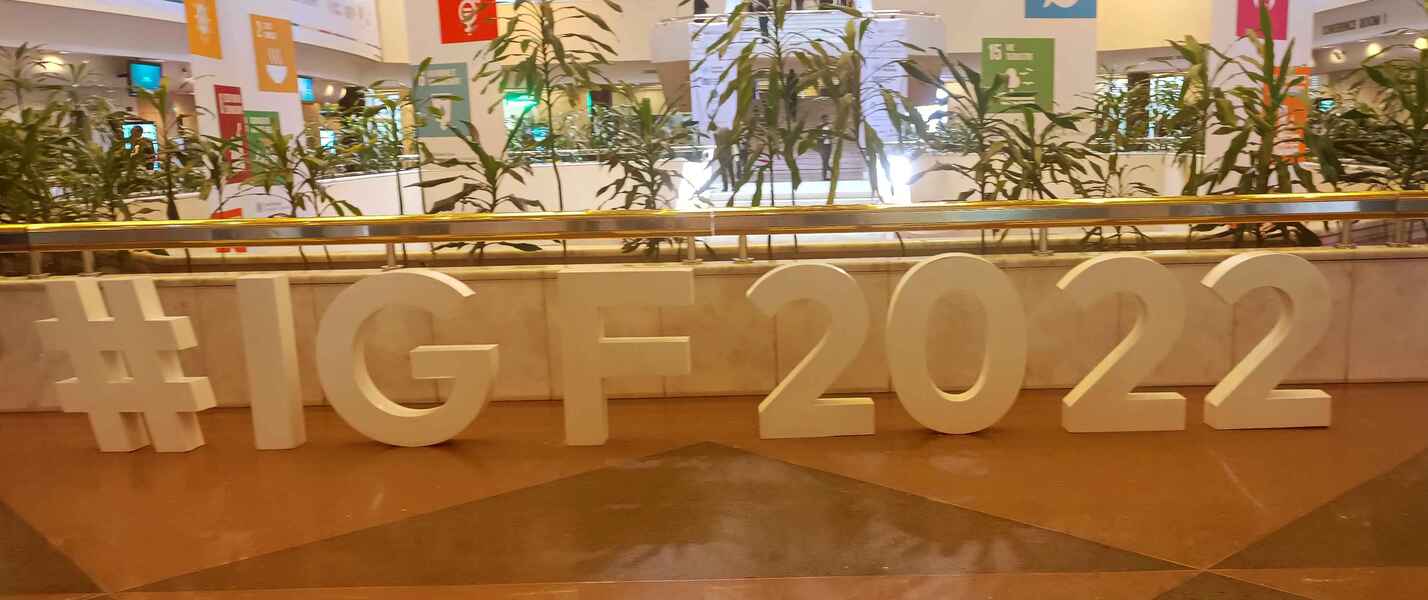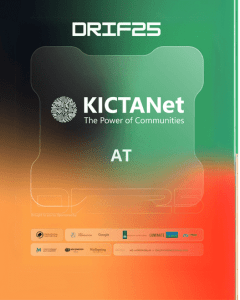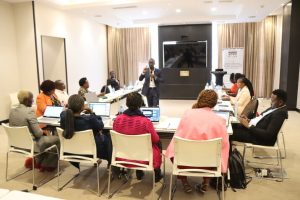Favourable digital policy frameworks are the cornerstone of innovation. Bridging digital policy gaps for rural and disadvantaged urban impoverished communities should take a multi-stakeholder approach engaging both policymakers, community connectivity operators and users towards a licensing and spectrum allocation framework that supports open market participation.
Policy Network on Meaningful Access
The Policy Network on Meaningful Access (PNMA) conducted a session on Lessons and Good Practices to Advance Meaningful Access, culminating in gatherings from studies and documentation of good practices from various case studies.
The results of these studies will help the multi-stakeholder working group identify if policy actions have facilitated or encouraged increased meaningful access to be featured in their output report. The session focused on good practices around three thematic areas;
- Connectivity ( infrastructure and business models)
- Digital inclusion through citizen approach (accessibility and multilingualism) with special attention to local content in the local language. Vint Cerf, the inventor of the Internet, spoke of localization as a focus on local languages and local content relevant to the communities.
- Capacity development ( technical skills training).
Meaningful access
Many sessions on connectivity mentioned meaningful access as the answer to “so what?” after connectivity. The concept of meaningful access has recently emerged as a response to evidence that those connections may not be fully reaping the benefits of this connectivity. Community networks were discussed as best positioned to develop value-added services contextualized for the community.
Digital rights should be linked to the economic activities of the communities and help them find solutions to avoid brain drain in urban areas. Contextualized content through local content creation and digital literacies are ways to create meaningfulness for the communities.
The 17th IGF was held in Addis Ababa, Ethiopia, from 28th November – 2nd December 2022, under the overarching theme Resilient Internet for a Shared Sustainable and Common Future, hosted in a hybrid format. The program was guided by 5 themes supporting the Sustainable Development Goals (SDGs) and drawn from the Global Digital Compact in the UN Secretary-General’s Our Common Agenda report.
Follow the next blogs for more perspectives about community networks at the IGF 2022.
This is a series of our publications on Community Networks.
______________________________________________________
Ms. Catherine Kyalo is the KICTANet Africa Regional Coordinator for Community Networks under the APC-LOCNET initiative. She is passionate about community welfare and enjoys yoga to rejuvenate. LinkedIn | Twitter




